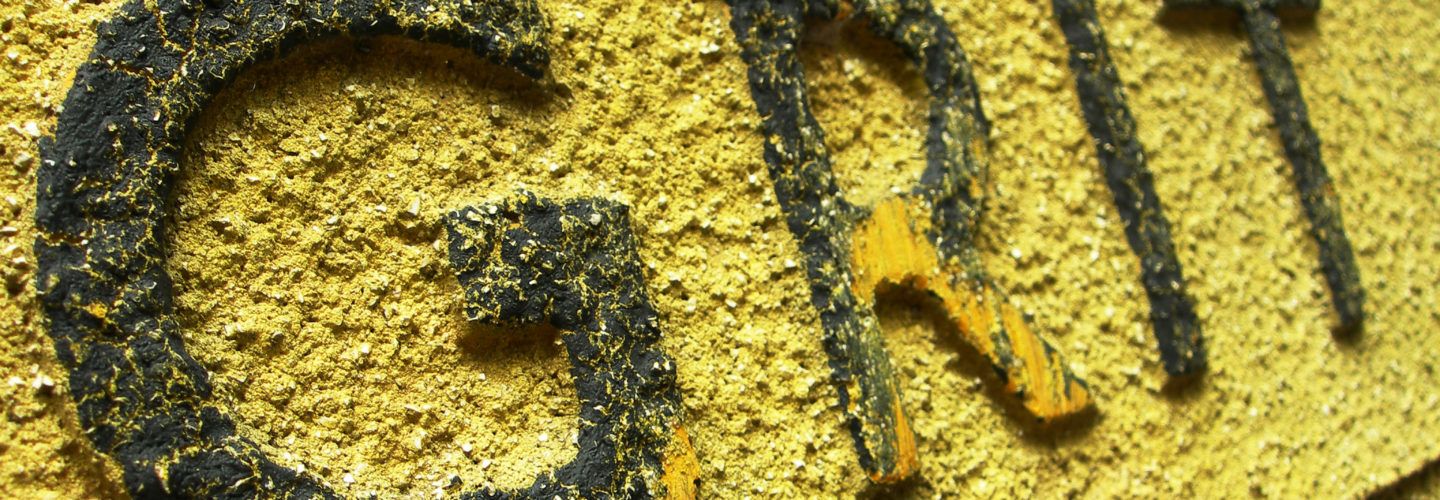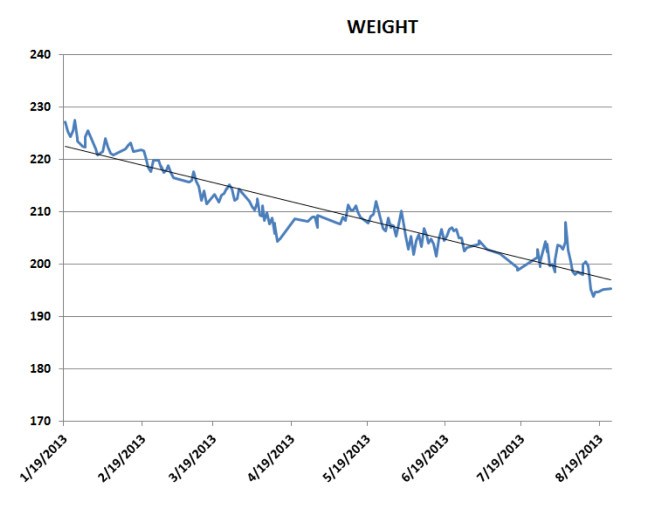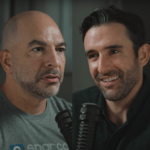One of my readers posted a link to this short talk from TED Talks Education. (You’ll want to watch it to understand the rest of the post.)
I found the talk interesting, and in the talk Ms. Duckworth makes a reference to a Stanford psychologist, Carol Dweck, who has been very influential in my thinking about children and childhood learning. In fact, when I became a father one of the first books I read (and have since recommended to every parent I know and even my daughter’s kindergarten teacher) is a book by Dr. Dweck, Mindset.
Now, I don’t know if everything Ms. Duckworth says or suggests is correct. Her work is well outside of my area of knowledge. But it’s a topic I think about so much, and since watching this video I’ve been reflecting on my life and the implications of this idea to our health.
First, some background
Shortly after my twelfth birthday, boxing fans around the world were given a gift unlike anything before or since, the showdown between Marvelous Marvin Hagler and Tommy Hearns (don’t watch this unless you can handle a violent boxing match). To this day most boxing experts agree the first round of that 3 round war remains one of the — if not the — greatest round in boxing history. I was a huge Hagler fan, and this fight galvanized in me two things:
- I wanted to be a professional boxer (something I pursued relentlessly enough to nearly forgo college), and
- I wanted to be just like Marvin Hagler, the grittiest fighter of my generation.
You see, I was not the fastest when it came to hand speed or foot speed. My punching power was good, but not George Foreman or Sonny Liston good. There was no special “gift” or talent I had that was ever going to make me the next Mohammed Ali or Mike Tyson. But, Hagler didn’t seem to possess any God-given ability and, in my 12-year-old opinion, he was the greatest fighter on Earth. Sure, Sugar Ray Leonard was the media darling and wealthiest fighter of the era, but Hagler was the grittiest. (Anyone tempted to point out that Leonard was awarded the split-decision over Hagler when they met in 1987 need not bother. In my mind – and the mind of many — Hagler won 115-113. If you want to read more, here’s a great summary.) He out-trained everyone. He never got out of shape between fights. He was always ready for combat. He was pure grit.
So, this became the defining feature and mantra of my youth. No one was going to out-grit me. I would run 6 to 10 miles at 4:30 in the morning (imagine how dark and cold that was in Canada) because I knew the other guy was still sleeping. I did 400 push-ups every single night (except one night in 11th grade when I was too sick to move) before bed from age 13 to 18 because I knew the other guy would not.
When I did decide, ultimately, to go to college instead of pursuing a career as a professional fighter (something I attribute to the most influential teacher in my life), it was such an easy transition, because I had already built a mental and emotional infrastructure of grit.
Perhaps because of some deep insecurity I always felt the need to out-grit everyone at everything, even surgery. In residency, while my peers would (rationally) try to catch a nap any time there was a free moment during call nights, I would practice anastomosing 3 mm Dacron grafts together with 8-0 proline, over and over again. I even built a model heart with a deep mitral valve to practice – a hundred times a day – one of the most difficult stitches in surgery, the “A-to-V” and “V-to-A” sutures through the mitral annulus.
You get the picture. I was (and remain) a freak. The ‘why’ is beyond me, though I’ve never stopped trying to understand it. Even when my daughter was only 5, I spent a lot of time talking with her about ‘mastery’ and the joy that comes from the journey of mastering a skill (versus the need to seek pleasure in the outcome or final result). This is not a natural phenomenon and I think, unfortunately, most of our education is based on the result and not the process.
I’ve read countless books on this, both out of desire to better myself and out of a desire to ignite this spirit in my children, and to date the best one I’ve read is The Talent Code, by Daniel Coyle. It’s the only book I’ve ever read where the moment I finished it, I turned to the first page to read it again. In this book, Coyle argues that grit – practice – may not be enough. It’s necessary, but not sufficient for mastery. The other component essential for mastery is the right kind of practice — deliberate practice. This topic is worthy of a book, of course, and not just a few sentences, but suffice it to say, deliberate practice is a very specific type of practice that leads to change. Mastery. While I disagree with this writer’s view that the book, Talent Is Overrated does a better job explaining the concept than The Talent Code, he provides a quick overview for those not familiar with the concept.
How does this apply to our health?
First, if you don’t practice correctly, no amount of practice is going to achieve mastery, whether it’s swimming the 200 IM or playing the piano. A disciplined approach to eating the wrong foods may be better than an undisciplined approach to eating the wrong foods, but it’s no substitute for the correct approach to eating the correct foods.
In 2009, when I was at the height of my unhealthiness – I was overweight, insulin resistant, and had Metabolic Syndrome – it was not because I was not ‘trying hard enough’ to eat well. I had all the grit in the world when it came to eating. I wanted so desperately to be lean and healthy. The problem, of course, was that I was not eating the right foods. It’s the difference between gritty practice and gritty deliberate practice.
Second, let’s posit you figure out what the ‘right’ foods are. Is this sufficient to achieve your health? Well, here I have to include not just my experience, but the experience of my friends, family, and clients. Some people, once introduced to the ‘right’ foods, experience almost an immediate change. The pounds melt off. Their biomarkers improve seemingly overnight. They feel rejuvenated and renewed.
Let me assure you, these folks are the exception and not the rule. For most people the pattern of going from metabolically broken to fixed, which often includes a loss of fat mass, is very slow; slow enough that on a day-to-day and even week-to-week basis it seems negligible.
To explain this, I’ll use fat mass as an example, since it’s the metric most people understand best. In my experience, outside of profound caloric restriction or outright starvation, the typical amount of fat loss I see in a person is about one pound per week, or about 60 g per day. That might not sound like much, and over a week or day, it’s not. (Though, hold 60 g of almonds in your hand and imagine a net loss of this much fat every day from your collective fat cells, and you can start to appreciate how impressive it is physiologically!)
But, we can’t track fat mass directly, at least not on our bathroom scales, and frankly not even with DEXA scans unless they are really spaced out. Certainly not at the level of a few hundred grams. Furthermore, our bodyweight – what we typically do track – fluctuates a lot. In me, for example, it fluctuates by 5 pounds per day. How, you ask? Water. Not just the difference between what I drink and what leaves my body (urine, perspiration, respiration), but also interstitial accumulation, which manifests as minute amounts of swelling, typically in muscles, and elsewhere, too, often in response to exercise, travel, stress, and even foods I eat.
So, if your bodyweight can fluctuate 5 pounds in a day, is it possible to track 60 g per day of net fat loss? It’s like me blindfolding you and putting 50 pennies in your hand and asking you if there are 49, 50, or 51 there. No chance. Furthermore, 60 g is so far outside of the measurement spec of a bathroom scale that even if your weight did not fluctuate much due to fluid shifts, you would never be able to appreciate the net fat loss over the course of a few days and barely over a week.
What does this look like in real life? Consider the graph, below, which shows the actual (and completely achievable) weight loss of a person over 7 months. This person went from 227 lb to 195 lb in 7 months, which represents an average of about 4.6 lb per month, or about 69 g of net fat loss per day (as confirmed by DEXA). This was not a starvation diet or something radical. This was a change in macronutrients – from a standard American diet to a ketogenic diet — that led to a change in net fat flux. But, the change is subtle over any short period of time. It’s only over months that the change becomes life-changing.
Now, imagine the day-to-day frustration this person (I know, because I was working with this person) experienced with the fluctuations in scale readings! It was tempting on many occasions to say, “Forget it, I’m going back to what I was doing before.” Just like there were many days I didn’t feel like going to swim practice, or days I didn’t feel like deliberately practicing my surgical technique.
If you remember nothing else, remember this: the game is won – or lost – not by the infrequent big changes, but by the frequent, deliberate, and repeatable small ones. This is where grit comes in.
Sure, there are genetic freaks and lucky ones out there, for whom none of this matters. But for the rest of us – because we live in, and are surrounded by, a food environment that is chronically toxic to about two-thirds of us – re-building our bodies requires consistent and deliberate change.
Are there people with all the grit in the world who can’t achieve health? Absolutely. And I put them into two categories:
- Those who are not eating the ‘right’ foods for them (recall: I was in this camp until 2009).
- Those who have underlying issues – usually hormonal – which are working against them and preventing their fat cells from liberating fat.
I will not get into these categories in great detail, because the topic is beyond the scope of this post and, frankly, it takes me months to diagnose this in people I work with weekly. So I can’t responsibly spout out blanket statements about ‘fix this’ or ‘fix that.’ However, far and away the most common causes I encounter in my practice for persistent metabolic derangement, often but not always accompanied by adiposity (excess fat), in the presence of seemingly correct eating and true grit are as follows:
- An insulin resistant and/or hyperinsulinemic person eating foods that stimulate significant amounts of insulin;
- Hypothyroidism (in my book, TSH > 2 accompanied by basal morning axillary temperature below about 97.8 F);
- Hypogonadism in men (which I diagnose with not only total testosterone, but also free testosterone, DHEA, and estradiol), or PCOS in women;
- Disruption of the HPA axis, most commonly manifested by “adrenal fatigue” and/or elevated cortisol levels.
Again, I’m not going to get into the nuance of these, but I list these to give those folks who believe they are A) eating the ‘right’ foods, and B) full of grit, yet not seeing results, some hope. These issues are fixable, but you need to see a doctor who knows how to fix them.
Fortunately, such situations are very rare! Most people, with the correct dietary intervention, armed with sufficient grit, and the confidence to stay the course, despite the day-to-day and week-to-week fluctuations, will emerge as renewed people.
Parting shot
Unfortunately, as long we live in a world where (i) the conventional wisdom, (ii) dietary recommendations, and (iii) the market forces enabled by them create an eating environment that is not suited to what most of us should eat, we need to guard against the desire to give up when the results are not what we expect in the timeframe we expected. As a result, about 90% of people who make a dietary change – and even see results – end up gaining the weight back. Why? I suspect it’s a bit of what I’ve written about here, and two other phenomena:
- The fall-off-the-wagon-and-get-discouraged issue, and;
- The I’m-better-now-I-don’t-need-to-do-this-anymore issue.
In the former, folks get very discouraged when they make a ‘mistake.’ Rather than immediately getting back on the program, they get frustrated, and over time – sometimes quickly, sometimes slowly – revert back to their old eating habits.
In the case of the latter, there is this belief that once the goal is achieved, one need not continue the practice. It’s like me training for a year to win a time-trial race on my bike, winning the race, and then deciding I don’t need to train anymore and I can still compete successfully. Not going to happen. If I want to win, I need to train. If I’m going to train, I need to train deliberately and persistently. Even on the days I don’t want to. When I miss a workout or have a bad one, I can’t beat myself up over it. I have to let it go and remember that tomorrow is a new day. The sum of my days determines my success.
Grit by Crystian Cruz is licensed under CC by 2.0







So Interesting. I eat like this here in the UK and it makes me feel so good. I was that young PA too – always trying to beat the rest (despite being female) and all those things I did again and again as a teenager and then in life (am a lawyer and being a parent of 5) I find the more I do them well and practise well the better I am. It is similar to Gladwell’s Outliers idea which is pretty sound – spend 10,000 hours doing something and you get pretty good as long as you’re doing it right.
My brother a doctor wrote a book in his field for individuals which I read this holiday. At the end is a suggestion of a normal diet. It’s appalling – carbs, diet coke, low fat this and that. I won’t even mention it to him as there is no point and he’s put on so much weight. I of course wrote 30 books not 1 as I’m the oldest child and we tend to achieve best.
Hi Peter! I have eaten low-carb for 2 years now and I firmly believe that it is the right approach to health. However, I have not lost a single pound in all this time of no sugar, almost no fruit, no grains, no starchy veggies, etc. I’m almost embarrassed to tell people that I eat low-carb and, lately, I find the frustration of still being 50-75 pounds overweight starting to tempt me into going back to my old way of dealing with that frustration (yep, binging on carbs!) Is there anyone that you recommend for someone like me to get some individual help for figuring out why I am stuck? I didn’t even have the initial weight loss that most people have when they start low carb! Thank you!
Susan, I can only imagine how frustrating this must be for you. I wish I knew of a great doc to see who could do the necessary troubleshooting around other endocrine systems that may be preventing weight loss. The post on fat flux may provided some insight. If I had to guess, the problem may be too much RE or not enough L.
Thanks for the wonderful post, I have been on the fence of how to even start to lose, the 100 lbs I must shift, have a host of issues ,post-menopausal, CFS, ect…
What do you call a person who knows how to lose weight but does not do it? 12 yrs ago lost weight on a low carb diet about 80 lbs, sooo lazy I guess is good, strange thing started out on Atkins, then kind of found out on my own that a fat fast, LCHF with IF seemed to work best for me, why I did not stick to it is beyond me, no GRIT, LOL.
I was reading Dr Eades, and he turned me on to this site, I have read for three days almost none stop about ketosis, wonderful posts, keep it up.
sherry
Sherry, I wouldn’t be so hard on yourself. There are many things I know I should be doing that I’m not doing. There is usually some other reason (beyond laziness) that gets in the way. Fear of failure? Fear of something else?
Thanks Dr Attia,
For the kind words BTW I have lost 6 Lbs of weight since Friday ,I know it is water weight ,but I will take it ,also one thing has changed it used to take a act of God and congress to get me into ketosis but this morning I noticed a small amount of pink OMG, I have raised the amount of fat and lessened the amount of protein, I just want to do this for two weeks and add more protein later.
Thanks again Sherry
What exactly is the deal with DHEA supplements? I’ve been taking them for about 4 months and I feel great. 31/M
Late to the party but.. Great post. Great message. I stumbled upon this site about a week ago and I’ve been finding myself coming back daily; finding/absorbing new and useful information.
I see so much of myself in the part you describe your gritty atitttude it’s ridiculous. Great post, and great blog in general. Found about it recently and read pretty much everything in here. My background is not in the medical area, but the topics you talk about interest me and it sure is a relief to find someone who has the balls to actually think things through and do real science instead of regurgitating common sense, whatever area they happen to put their efforts in. There’s a scarcity of people like this everywhere these days.
Hi Peter,
My question is a rather simple one, but I am not entirely sure of the answer. When limiting carb intake, I know refined (simple) carbs should be avoided when ever possible. How about fibrous carbs? What would be a good daily limit for these in order to keep the body in a state of ketosis?
Thanks for your help.
Adam, Phinney and Volek suggest less than 50 daily carbs (total) as a start. From there you’ll want to figure out what is best for you and your stated health goals.
Hi,
I am a 32 year old female with CAH. I am 5’4 and have lost 40 lbs since my highest weight and am needing to lose 20 lbs more. I did this through a combination of calorie counting, running, insanity,and kickboxing. After my 2nd child it became much more difficult to lose the last 20 and I fell upon LCHF WOE. Even though I have been doing this for 2 months, I have seen no drop in lbs or inches. What about CAH prevents weight loss ? I have not seen any information about CAH and I wanted to ask your input on it or if anybody has any past experiences with it.
Thank you
I’m not sure if this is the right platform to bring this up but nevertheless … I’m a food addict and have reactive hypoglycaemia (while also being an alcoholic in recovery and a sugar addict in recovery) – if you like labels! For me there is no satiety – I will eat myself sick if I’m not disciplined. This LCHF way of eating is miraculous for me – as long as I stay under my estimated daily calorie requirement. I hold out hope that my body/mind will know satiety at some point in my life – but I don’t care if it doesn’t.
I don’t know what the answer to the calories in = calories out equation is. I do know that if I estimate my daily calorie requirements (https://www.exrx.net/Calculators/CalRequire.html) – decide on how many calories in deficit I wish to be – then work out my macronutrient amounts in in grams and calories (while keeping carbohydrate under 20g/day) then I am in a win-win situation.
If the calories in = calories out hypothesis is true then I am in a deficit and lose weight without hunger. If the alternative hypothesis that I can eat as much as I like (in ketosis) is true then I lose weight without hunger! I eat along the Overeaters Anonymous path – though I eat 4 “square meals” a day – each with up to 30g of protein, up to 30g of fat and minimal carbs. This equals approximately 1560 calories consumed (+ minimal carbs) per day – which is well under my 2048 calories per day BMR.
My heartfelt thanks to the Dr Attia and to all the other souls involved with this diet. God bless you all.
Best of luck as you continue your journey of self-experimintation.
I have spent many hours on your posts which have been very beneficial and inspiring. Some things still puzzle me:
I have been on keto since about March 2014 and have been at low carbs (less than 50g/day) for the last 6 weeks. I am 176 cm in height and have put on weight from 81 kg to 87kg since March which is all lean body mass as determined by a calliper method – i.e. 6kg. My body fat is down to 22% from previously 27% but this is almost all (except 1 kg) due to gain in lean body mass. I still carry 19.5 kg fat.
I get 60% to 80% of my daily Calories from fat. In general I feel exceptionally good excepting for constipation. I can cycle 60km on strenuous terrain with nothing but water.
How do I burn more fat from my own reserves?
When I check ketones I struggle to keep them above 1,5 and am surprised to see that glucose is still between 4.7 to 6.0. How does the brain decide when to use ketones and when to use glucose (which is obviously coming from somewhere? I limit protein intake to +/- 1 g per kg bodyweight per day and I supplement with Carnitine.
I see nothing in your blogs or in any of the blogs by Phinney and Vokes etc. about this. Would love to understand more.
Thanks for tons of really good info.
Peter
Peter,
You are a beast, a true Leonidas of Sparta. Thank you, thank you, thank you for everything you do for all of us, for sharing some of those very precious 168 hrs. with us.
This blog is life-changing on more levels than you might imagine.
Ha ha…that’s a pretty remarkable complement, Naren!
Hello and thank you. Your recommendations have worked for me. I was 205 lbs with a waist > 36″, am now 165 lbs waist < 32", it took 3 months to lose that 40 lbs. I have been keeping the weight off for more than 14 months now [male 5'10" 49 years old]. When the weight started to slowly come back up i decided to also change the number of hours I spend standing up vs sitting down. I increased the number of hours standing up by about 4 hours per day by working at a standing desk, and eating, working standing up. Friends and family think that the change in diet and the time standing up is crazy/unhealthy and say that i will die of a heart attack and ruin my back. I refer them to your site but sadly, few can be convinced. That is why having 'grit' is so important [to resist peer pressure]. LCHF with the increase in time standing up have changed the way i feel [much less hungry and tired], think, sleep. Hope this information helps you as well and your readers. Jean-F. G.
That’s a pretty impressive result, Jean (and amazingly similar dimensions to mine).
Thank you for your ongoing information, I’m feeling great. Thanks also for the link to the inspirational story about the vet, it was incredible. Him running in the end blew me away! And I agree about the song !
“I’m cured now! I don’t need this anymore!” Perhaps that phrase entered my head.
After losing 130 pounds, going from a size 24 to a size 6, did I think I was “cured?” For several years I successfully fought the fight. Exercising 2 hours a day 4-5 days a week. Running, cycling, lifting weights. Eating low carb.
Then a series of events that “I let” derail me. Husband died, mother diagnosed with ovarian cancer, piriformis syndrome put an end to my beloved running and the carb creep began. All of these events were part of the equation, but perhaps the biggest one was the voice in my head that said “I’m cured now. I’m normal.”
I am going back to the one who brought me to the dance.
Cyndi, the way I think about it is more of a remission than a cure. I’m better today, but the metabolic demons are right around the corner…waiting to pounce. The best I can do is to keep them at bay…stay in remission.
You’ll get back there soon.
I like the term “grit”. It’s close to, but not quite the same as, mental toughness. One of the most appreciated complements I ever received was from a girl friend who was an elite cross country skier. I was a neophyte, and usually only ever saw the bob on top of her ski cap disappearing over the next hill. One day, we had a particularly grueling (read mostly uphill and icy) skating run, and at the end of it it was totally spent. Totally. Leaned up against the tire of the car and nearly froze. But then she said, “You know, you really have good mental toughness.” It was totally rejuvenating and motivating. I’ve long since lost contact with her, but that complement has made fast my perseverance in many, many or life’s curves. So, I really like your use of the term grit, and I hope I inspire my daughters to have some of the same.
It’s a great feature to have. I often wonder if it can be taught.
Hi Peter, I have a question, how do I know if I am insulin resistant?
OGTT is probably best “common” test, provided it measures both glucose and insulin at 60 and 120 minutes.
Hi Peter,
I’m noticing more and more people in the “paleosphere” advocating a variety of versions of bulletproof coffee and copious amounts of other “good” fats along with rather copious amounts of “good” carbohydrates. Based on your writings, it would seem to me that at best this would be a recipe for a deterioration of one’s biomarkers, and at worst, a perfect storm for fat storage. Granted, none of these folks have much real training in nutrition science, and most of them are fairly young and could probably eat pizza all day, but I wonder what the effect of this combination would be for people who are not young or blessed genetically. Any thoughts?
Since I pay less than zero attention to any “sphere” I’ll take your word for it. In my humble opinion, the only indication for a bulletproof coffee is if one is in ketosis. I’m not sure it makes sense to mainline liquid fat in the presence of a high(ish) CHO diet, though I suspect for some people this might post no problems, while for others it might.
Hi, how do I know if I am insulin resistant?
OGTT with glucose and insulin sampling at 0, 60, and 120 minutes is easiest way.
I am 14 and I weigh 220 pounds, I wanted to know how can lose weight effectively and keep it off. I have tried to lose weight a lot and when I lose it I gain it again. I tried a lot of methods like starving myself, starving myself and exercise, motivation and a lot more but they do not work. I don’t know if I should go to a nutritionist or should I just exercise. I just want to know how to lose weight to keep myself healthy.
Jen, see if you can find a good doctor who understands endocrinology well. In addition to changing what you eat, there may be medications that can overcome some of the likely hormone issues underlying your weight and metabolism.